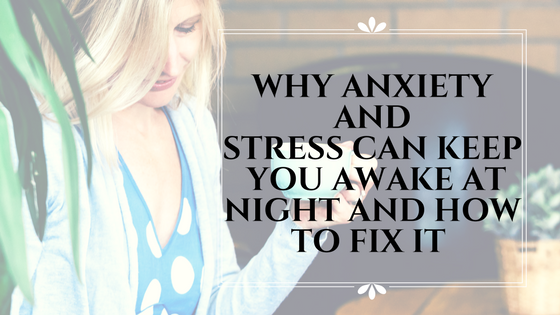
When suffering from anxiety and stress often the first thing to go is a peaceful and reliable night’s sleep. That was certainly the case for me. I would spend hours desperately trying to stop thinking about not sleeping until I would eventually fall into a restless sleep driven by emotional exhaustion, only to wake up in the early hours of the morning plagued with worry about things that may or may not happen. Through Hypnotherapy I now know that both of these events were alert signals being sent by my brain to tell me that something needed to change. If I had known how easy it would have been to address this, I would have sought help a lot sooner.
The alert signals being sent by the brain are stopping you from sleeping because it believes it is keeping you safe. When you are lying awake feeling anxious about something, alert signals are being sent by the brain, communicating to the body that there is something to be fearful of, as a result your adrenaline levels are higher than normal. When you are in this state your body is focussed on keeping you alert and safe – not sleeping. I learnt through experience that the only way to address this is to look at the underlying cause, which in my case was both anxiety and stress. I learnt that I was globalising my problems, and by this I mean that I was escalating the event causing my anxiety and stress to become something much bigger than it really was.
An example
A friend who has recently become self-employed told me that she had an awful week because she had made a mistake with a client and she thought it was a result of being self-employed and trying to juggle too much outside of the business advisory role she would previously have focused on. Instead of being rational about the problem, she immediately jumped to “I hate by job, I am terrible at it, it was a mistake to leave my old job” and of course, her brain had heard her thoughts and reacted appropriately. I advised her to stop and think about the real cause. It turned out to be the added pressure of the administration of running her own business that was the issue and not the job itself. She found the cause of her anxiety and now works with a business coach specifically to skill up in business administration. Not surprisingly her brain reacted and her anxiety fuelled sleepless nights have disappeared.
Here are a few tips to help you get that good night’s sleep.
- Identify the problem, seek support from family / friends / therapist if necessary.
- Stop trying so hard! Have you ever heard of the term ‘Law of Reversed Effect’? If you haven’t, it essentially means the harder you try to do something the harder it becomes. If you have been lying awake worrying, get up, do an incredibly boring task, for me that would be ironing!
- Introduce cut off times for work. Technology has made it incredibly easy to just keep going, putting immense pressure on you to respond to any message or query almost immediately. Introducing a cut-off time will allow you to unwind.
- If by cutting off early you feel you are leaving too much unfinished business, write them down, this will allow your brain to dismiss it as you have a plan. A good night’s sleep will make you much more productive the following morning, I promise!
- Introduce a healthy bedtime routine, go to bed and wake up at similar times each day. We often think it’s just children who love routine but its adults too. The brain works well with routine and embeds it in the memory.
- Listen to a relaxation CD. I would be more than happy to send you mine, just drop me a text with your email address and I’ll send it across.
- Last but by no means least keep a gratitude diary, writing down at least three things that have gone well that day. This will enable you to finish your day in the intellectual/rational part of your brain allowing for a good nights sleep. I do this before listening to my CD.
The tips we all know about but need to be reminded of:
- Don’t drink alcohol 2 hours before bedtime, this can be tricky over the Christmas period but definitely worth sticking to. 😉
- Avoid caffeine 6 hours before bedtime, maybe try herbal tea instead. There are some great sleepy teas on the market.
- Stop looking at electronics at least one hour before bed.
- Stop watching your clock, move it away from your vision this will get rid of temptation.
- Don’t exercise 3 hours before bed.
- Create an optimal sleep environment, maybe think about dimmer lighting, the tidiness of your room.
- Ensure you’re ready for the following day, lunch ready, bag packed!
Remember if you have been struggling to get to sleep or waking in the small hours of the morning your subconscious mind has been getting used to being awake at those times. So by introducing new ways of doing things you are retraining your brain. This does take time, so persevere it’s worth it.
Many of my clients are working in demanding environments where anxiety and stress levels tends to be high which has a direct impact on their ability to develop a consistent sleep pattern. Attending The Guthrie Practice has enabled them to successfully manage their own anxiety and stress levels resulting in much improved sleep.
If you would like to come along for a free initial consultation please do call me on 07929 005149 and we will get you booked in.
